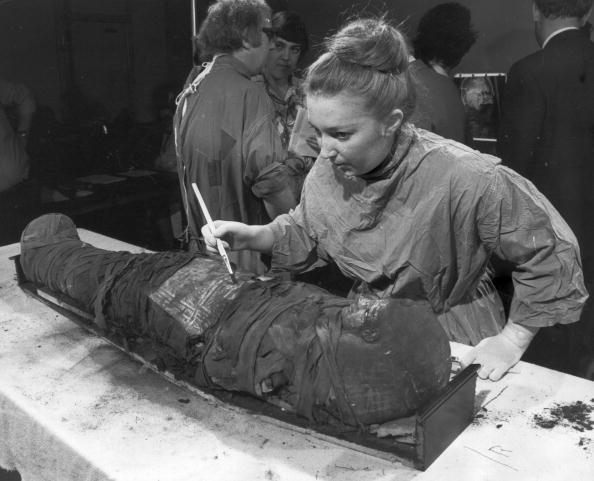
A mummy known as Irtieru may have suffered from the advanced stages of renal tuberculosis, according to Portuguese researchers.
Irtieru is believed to be part of a noble family and the sarcophagus may have been around for more than 2,300 years. It is currently being displayed in Museu Nacional de Arqueologia in Lisbon as part of their Egyptian antiquities collections. Although the provenance is unknown, Irtieru, whose name stands for "that the two eyes turn against them," may have been around during the Third Intermediate Period between 1070 and 712 BCE.
The study is included in the Lisbon Mummy Project. According to Alvaro Figueiredo, an archeologist who studied in the University of College London and one of the main researchers of the project for the museum, objects that are associated with the mummies have already been studied comprehenisvely. However, the mummies themselves have not been subjected to a much closer inspection using imaging analysis like X-rays.
During X-ray scanning, the team discovered that the Irtieru may have died around 35 to 45 years old. He was also tall at 5.6 feet. The most interesting discovery, however, was the bean-shaped structure detected in the lower left back, which may indicate his kidney.
The ancient Egyptians usually didn't remove the kidneys even during the embalming process, but the organs would still experience decay. If not, the embalming procedure would change their structure that they become indistinguishable. However, because the scan was able to catch it, it would mean that something has occurred in the organ that has preserved it. The radiologist Carlos Prates then mentioned that it might have been caused by end-stage renal tuberculosis, which caused the kidney to harden with the buildup of calcified deposits. Should this finding be accurate, Irtieru then has the oldest reported case of the disease.
Nevertheless, the kidney problem may not be the reason for his death but a possible infection to the lung.
